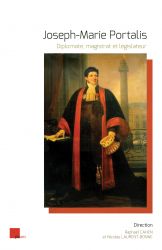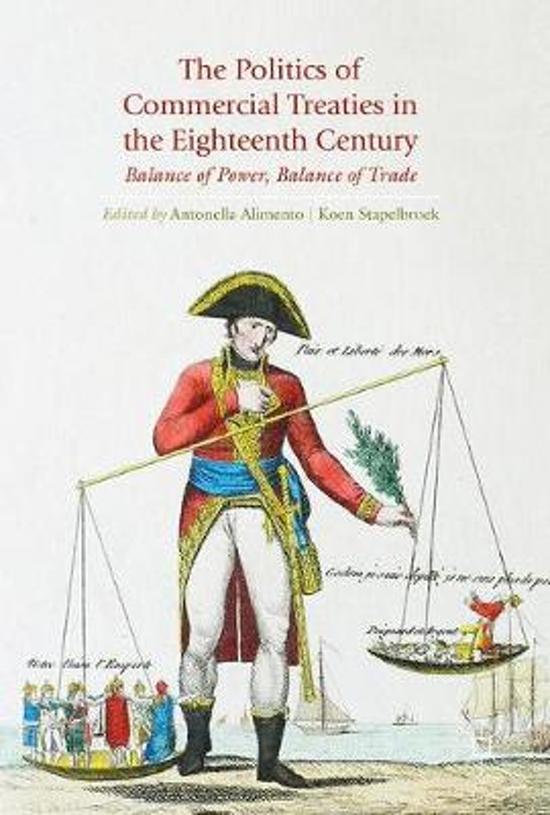The
Peace of Utrecht (11 April 1713) whereby the War of the Spanish Succession ended between France on the one hand and the Dutch Republic, Portugal, Savoy and Great Britain, on the other hand, was based on the principle of the "
Balance of Power", which -
in my view, recently endorsed by a leading scholar in a
collective work, gave rise to the use of
norm hierarchy as legal argument. Otherwise, the competing and mutually exclusive claims of the Bourbons and the Austrian Habsburgs would have created a dreaded Universal Monarchy in Europe.
During my PhD research between 2009 and 2013, several fellow scholars asked whether, why and where I could find the exact expression "balance of power". My usual reply is that this question is not very helpful if one aims to understand the operation of early modern diplomacy. The use of a specific term is often indeterminate and open to political instrumentalisation (at many instances, "balance of power" can be used to cover anything). Conversely, the concept is often identified implicitly, using interchangeable ideas such as "tranquility of Europe".
Doctrinal constructions are unhelpful to grasp the significance of terms used in political and diplomatic documents. Vattel's use of the term "équilibre" in the 1750s does not necessarily cover the same doctrinal and political reality as that of Torcy or Matthew Prior at the end of the War of the Spanish Succession. In my understanding, "Balance of Power" refers back to every polity in the European system's right to self-preservation, guaranteed collectively by upholding the fundamental treaties which are based on a division of power between the main players. The concept is both static (guaranteeing political order, and thus the norm pacta sunt servanda) and dynamic (in the sense that negotiated amendments are possible, and that any member of the system will frame his arguments capable of convincing counterparts to take up arms against perturbers).
The ideological construction of "Balance of Power" in domestic or international public opinion is distinct from use in inter-sovereign relations. If this is purely seen as a devise to stop a perceived threat of Catholic hegemony in Europe, the concept becomes utterly unhelpful international relations, were treaties, "even if contracted with infidels", retain their binding force. Catholic France and Protestant Britain upheld the principle of balance of power after 1713, irrespective of religious, economic or maritime opposite interests and ideologies.
The only realistic approach is a
close reading of every archival document one encounters. A fine example is the memorandum entitled
Condition actuelle de la hollande considerée par rapport au Traité d'Utrecht, kept in the French Diplomatic Archives' fascinating fund
Mémoires et Documents, in vol. 60 ("Hollande - documents divers, 1713-1743"). The document is dated -erroneously- 1714 (see
inventory), as will transpire from the citations below. It is attributed to Nicolas-Louis Le Dran (1687-1774), a top civil servant in the
Bureaux des Affaires Étrangères, who served in various services (including the archival service) throughout Louis XV's reign. Le Dran is the author of countless memoranda of varying length. In 2015, Christian Fournier defended an
impressive MA Thesis on this tireless writer at the University Paris-Sorbonne.
The Peace of Utrecht was not a joyous event for the Dutch Republic, which had suffered from the efforts undertaken in the
Grand Alliance (1701-1712) consisting of the Emperor (and most German princes), Britain and the Dutch Republic (later on: Savoy, Portugal) against the Two Crowns of Spain and France. Britain dropped out of the war in May 1712, after concluding
preliminary articles of peace with France in the Fall of 1711. Dutch and German forces lost the battle of Denain against the French army of Villars. Whereas the Dutch Regents had insisted throughout the war on a considerable
Barrier in the Southern Low Countries against France, the initial British promises watered down to a restricted version of this "security" in
1715, which would gradually be watered down and ultimately denunciated by the Austrian Habsburgs.
The transcription below does not modify the initial spelling. Although there is little constancy in spelling, early 18th century grammar does tend to be rigorous. If the text does contain grammatically surprising expressions, I will indicate them with a [sic].
Condition actuelle de la hollande considerée par rapport au Traité d'Utrecht (AMAE, M&D Hollande, v. 60, ff. 6r°-13r°)
La loi fondamentale posée pour base du Traité d'Utrecht a eté d'établir un Equilibre et des limites politiques entre les Etats; dont les interêts respectifs avoient fait le sujet de la guerre, de sorte que leurs forces ne fussent point doresnavant à craindre, et ne pussent causer aucune jalousie.
This introduction clearly reflects what I stated above and in an article on the evolution of legal argumentation around the Spanish Succession in
2011: a compromise between both camps' claims was necessary; otherwise, peace could never be lasting.
Pour mettre cette loi en execution, il a été convenu que lesdits Etats ne [f6v°] pourroient s'étendre au delà de ce qui etoit resté dans le Traité, soit relativement au commerce et à la navigation, soit contre l'union des differentes couronnes ensemble afin, dit le Traité, que plusieurs Puissances etant reünies en une seule, la balance de l'egalité qu'on veut assûrer, ne penche point à l'avantage de l'une d'Elles, au prejudice des autres, et que lesd. Puissances inspirent moins de craintes, et ne puissent aspirer à la monarchie [f7r°] universelle.
A paragraph full of interesting concepts. First, the author of this memorandum distinguished between
two aspects of state power: commerce and navigation (recently treated in the collective volume
Balance of Power-Balance of Trade) and 'the union of several crowns together'. The '
balance of equality' created by the treaty ought to ensure that no of the contracting parties could obtain an edge. As such, fears of a Universal Monarchy should be dissipated.
I explained
elsewhere that
dynastic interests linked the French Regent and George I of Great Britain in their reaffirmation of the Treaties of Utrecht (as we can observe in a bilateral treaty of alliance in November 1716; in the Treaty of the Triple Alliance of January 1717 and in the Quadruple Alliance of August 1718). Of course, this required several domestic decisions on policy priorities.
As I explained in an article in the open access-journal
Legatio, French merchants complained on British depredations in the Mediterranean, although both crowns were allied in a war of intervention against Spanish aggression in Italy. The imperial history of the eighteenth century point not only to the Treaties of Utrecht, but also to the Treaty of Paris of February 1763, whereby France ceded substantial parts of its American and Indian Empire to Britain. The pre-history of this imperial clash has been studied in detail by
Armin Reese.
While preserving a balance on the continent, Britain had obtained privileges in the
Spanish Empire, and opened trade with Brazil through the Methuen Treaty (whereby Portugal joined the anti-French coalition in 1703). The legal reality of treaty clauses did not correspond to practice. Widespread interloping caused conflict with Spain. Throughout British diplomatic correspondence, George I's and George II's ambassadors in Paris had to accommodate maritime and colonial conflicts. Throughout the period after the Peace of Utrecht, part of the French court was more inclined to an alliance of the two Bourbon powers, which resulted in the 1721 and 1733 Family Pacts.
It is thus not surprising to read the following paragraphs:
Au mépris d'une loi si solemnelle et si claire, la couronne britannique n'a cessé depuis la Paix d'Utrecht de s'étendre par les divers avantages de commerce et navigation qu'Elle a extorqués de l'Espagne, par les empietemens qu'Elle a faits sur les colonies de la France et de l'Espagne en Amerique, et le despotisme qu'Elle a exercé et exerce sur toutes les nations commerçantes. Enfin Elle n'a fait aucun pas depuis cette Epoque qui n'ait eté dirigé vers [f7v°] la monarchie universelle des mers dont Elle est prête de s'emparer pour toûjours, si l'on n'y met de promts et puissants obstacles.
The author of the memorandum clearly accused Britain of seizing the 'Universal Monarchy of the Seas', and exerting a 'despotism'. Spanish commercial concessions at Utrecht are depicted as having been 'extorted', hinting at a vitiated consent. It is tempting to liken this to comments on British naval hegemony during the French Revolutionary and Napoleonic Wars (where the 'Système Continental' confronted a tough British opponent) or the American War of Independence (where France, Spain and the Dutch Republic opposed British maritime supremacy and the 1780 League of Neutrals originated). The backlash against British imperial designs started in the 1720s. The Spanish siege of Granada in 1727 and the British blockade of the Spanish silver fleet in Portobelo foreshadowed the War of Jenkins' Ear (1739-1748).
The memorandum, however, was not directed at Spain, but at the Dutch Republic. Throughout the War of the Spanish Succession, France had tried to lure the Dutch away from the Grand Alliance, as I explained
earlier.
La hollande, qui auroit dû s'y opposer, et pour son propre interêt, et pour l'execution des Traités, y a au contraire infiniment contribué par le changement de son gouvernement, contre les principes du Traité d'Utrecht et par la complaisance pernicieuse qui en a resulté de sa part, pour les projets ambitieux de l'angleterre.
The Dutch Republic had been invited to joint the Treaty of the Quadruple Alliance (2 August 1718), designed to stop the Spanish invasion of Sardinia (1717) and Sicily (1718). This did not happen. Only in 1725, at the
Treaty of Hanover (September 1725) were the Dutch prepared to join an alliance and take up arms jointly with Britain and France. The Dutch had remained aloof of Franco-Imperial confrontation during the War of the Polish Succession (1733-1735), and had concluded a convention with France on the neutralization of the Austrian Low Countries.
In the
War of the Austrian Succession (1740-1748), the Dutch Republic had become an ally of George II of Britain (and Hanover) and Archduchess Maria Theresia, Queen of Bohemia and Hungary (whose hereditary lands were threatened by Bavaria, Prussia and France). The French army invaded the Austrian Low Countries and occupied them. At the Peace of Aix-la-Chapelle (October 1748), Louis XV renounced to the effective annexation of these territories.
Recent research has insisted on the considerable military forces assembled by the United Provinces during this conflict.
[f8r°] Quand les traités d'Utrecht ont eté conclus, les Provinces unies formoient une Republique composée de plusieurs Etats reünis sous les Loix d'une confederation qui devoit être immuable. Telle est la Republique dont l'erection a eté protegée par la France, et qui a subsisté encore long tems après le Traité d'Utrecht. Tel est le gouvernement qui faisoit le titre de sa consideration et de son rang entre les autres Puissances de l'Europe et le fondement de leur confiance pour elle [f9v°]. C'est avec cette Republique que Louis XIV. a conclu le traité d'Utrecht, et que Louis XV son successeur a promis de l'executer; mais le Gouvernement de cette République est entierement changé par l'introduction du stathouderat, tel qu'il a eté etabli. La Hollande n'est plus Republique que de nom. Elle est devenüe une Province d'angleterre regie selon les maximes et les vües de cette couronne. Dabord par un Prince Gendre du Roi d'angleterre puis par une Princesse fille du même Roi, actuellement par son [f10r°] petit fils, et dans la suite par des Princes et Princesses leurs descendans, tenant et fort près à la maison qui regne en Angleterre.
The author of this memorandum insists on the
confederal nature of the Dutch Republic in the early 18th century. At the decease of Stadholder and
King William III, influential provinces as Holland and Zealand did not appoint a new successor in this office. This ended in
1747, when William IV of Orange (1711-1751), a relative of William IV, could reinstate the power of the House of Orange (I refer to
English and
Dutch literature on the subject). The paragraph refers to his marriage to Anne, daughter of George II of Britain, in 1734. The House of Orange is portrayed as dependent to the ruling family in Britain. geographically, the North-Eastern provinces of the Republic were in the same geopolitical theater as Hanover.
Les Stathouderats precedents etoient passagers, mais l'etablissement du Stadhouderat actuel est un acte par lequel les Provinces unies se sont donné [sic] pour toûjours un chef revêtu d'une autorité incompatible avec leur liberté absolüe; cette dignité est devenüe perpetuelle et hereditaire, en sorte qu'elle n'est plus attachée au merite d'un chef librement Elu pour un tems limité, mais [f10v°] au hazard perpetuel de la naissance d'un Prince allié par le sang à la maison d'hanovre, pour comble de préjudice, relativement aux Provinces-unies, et a toute l'Europe ce stathouderat peut non seulement être exercé par un tuteur ou une tutrice, pendant la minorité du stathouder mais il est encore transmissible aux femelles, de sorte que par un renversement de toutes les Loix de l'Etat, une femme peut être le chef d'une pretenduë Republique [f11r°] qui n'a jamais admis aux charges de son gouvernement que des hommes, et cette femme deja alliée par le sang à la maison d'hanovre peut transmettre son autorité à son mari, et la faire passer dans une maison etrangere, devoüée comme Elle a l'angleterre, et ennemie soit de la France, soit de la Republique même.
The passage is clearly hinting at the opposition between provinces and stadholder, and presenting France as the protector of liberties, analogous to the role played by French diplomats both in the Republic and in the Holy Roman Empire (where France formally acted as the guarantor of Protestant freedom). Female succession is likened to an open door to the House of Hanover (through a Regency, or simply through succession). The praise for elected heads of state should not be confounded with the French domestic theory of sovereignty, which was modeled on hereditary monarchy.
Il est donc certain que par l'établissement de ce stathouderat hereditaire et feminin, les hollandois ont renversé leur Gouvernement et [f11v°] y en ont substitué un tout nouveau, contraire à la loi fondamentale du Traité d'Utrecht, en ce qu'il rend la hollande assujetie aux vües de l'angleterre, et qu'il étend la puissance de celleci au prejudice du commerce universel, et des libertés de l'Europe entiere.
The claim in this paragraph is far-reaching. It implies that the Treaties of Utrecht had established a
'freeze' on internal constitutional arrangements, rendering changes conditional to the agreement of the European great powers. Changing the political system of Holland would overthrow both the balance between dynasties (
les libertés de l'Europe entière) and perturb the equitable distribution of commerce throughout the world (
au préjudice du commerce universel). Although the application the Dutch Republic feels overblown, France and Britain did try to influence (succesfully) the succession in the duchies of
Parma, Piacenza and Tuscany in a long process from 1718 to 1737, invoking the principles behind the Peace of Utrecht (neutrality of and balance of power in Italy, limiting the seemingly unfettered exercice of Imperial feudal power).
Il resulte de là que le traité d'Utrecht est totalement éteint dans les circonstances presentes. Il l'est entre la France et la Grande-Bretagne par la guerre survenüe entre ces 2. couronnnes [f12r°]. il est anneanti entre l'Espagne et l'Angleterre par le parti que la Cour Britannique a pris de rompre avec celle de Madrid. Enfin ce Traité n'existe plus entre la France l'Espagne et les hollandois par le renversement de leur gouvernement, et par les consequences funestes qui en ont resulté, au moyen de leur devoüement à l'angleterre, lequel est si aveugle, que malgré les excès continüels que la nation angloise commet contre leurs vaisseaux, ils ne cessent [f12v°] de travailler pour lui procurer la balance du pouvoir maritime, et se rendent à la fois victimes et complices de l'agrandissement et present et futur des anglois.
This paragraph hints at a clausula rebus sic stantibus (implicit clause allowing for the extinction of a contracting party's obligations when a fundamental change in circumstances occurs, which could not have been foreseen by the parties at the conclusion of their agreement). The Franco-British War of the Austrian Succession had 'extinguished' the Treaties of Utrecht between them. Likewise, Spain and Britain were at a rupture. As a consequence, the treaty had been broken between them. By its internal changes, and due to a lack of opposition to British 'excès continüels', the Dutch Republic 'procured the maritime balance of power' to Britain, and would be at the same time 'victim and accomplice' of the expansion of British power.
Dans cet etat il y auroit de la duperie de la part des couronnes de France et d'Espagne, d'executer en particulier les stipulations de commerce du Traité d'Utrecht avec les hollandois tandis qu'ils les transgressent en faveur des anglois; la duperie seroit encore plus grande dans la circonstance de la guerre avec l'Espagne. Le dessein des anglois etant [f12r°] d'aneantir le commerce universel; le plus grand moyen d'y reüssir est la non interruption du leur et ce sont les hollandois qui leur procureront, comme dans la derniere guerre avec l'Espagne, la continüation de leur commerce dans ce Royaume, en y introduisant sous le plomb d'hollande les Etoffes angloises, et autres productions de leurs manufactures.
The author of the memorandum tries to establish causality and connection between the separate bilateral commercial conventions concluded between the Dutch Republic and France, the Dutch Republic and Spain, on the one hand, and those between Britain and Spain, on the other hand. The ratio of his argumentation consists in the impossibility to uphold separate trade agreements concluded in Utrecht, if one of the partners absorbed another one. If the British influence in the Dutch Republic became predominant while the other trading relationships continued, Britain would automatically obtain 'universal trade', just by 'not interrupting' its existing trade relationships. France and Spain would commit 'de la duperie' (fraud) if they did not consider their own engagements to have been terminated....
C'est la prevoyance de cette manoeuvre, qui a rendu necessaires les stipulations de commerce contenües dans le Traité entre la France et l'Espagne [f12v°] elles ne sont point contraires au Traité d'Utrecht qui n'existe plus. Elles sont indispensables puisque si l'on ne coupe les ressources du commerce des anglais, leur projet d'anéantir le commerce universel est consommé et que le salut de l'Europe est attaché aux obstacles efficaces qui seront opposes à ce pernicieux dessein. Par consequent il n'est pas possible de changer de conduite avec les hollandois, à moins qu'ils ne changent de sisteme par rapport à l'angleterre, et qu'ils [f13r°] ne donnent des preuves autentiques d'un concours sincere à la deffense de la liberté du commerce et de la navigation de l'Europe.
This paragraph recapitulates the author's main point: the treaties of Utrecht ceased to exist (in his view). If the general interest of Europe commanded a different line of conduct, this could impose itself as a priority over respecting previous engagements.
What should one conclude from reading this document ? Foreign policy professionals were charged with advising their political masters on possible courses of action. This implied combining political and economic interest with the prevailing treaty framework. The carelessness and ease deployed in pushing aside the commercial conventions concluded in Utrecht in 1713 seem to indicate the irrelevance of the law of nations.
Yet, the reasoning embedded in this document mobilises a typical lawyers' instrumentarium. The document dates from at least 34 years after the peace of Utrecht (since the Stadholderate was only reinstated in 1747). The commercial conventions of 1713 had not fixed market shares, but had created conditions wherein Spain had to open part of its overseas commerce to Britain, while assuring privileges to French and Dutch merchants. The author of the memorandum attempts to find legal arguments to check the deployment of (perceived) British influence over Dutch trade, and tries to mobilise the interconnectedness of the various bilateral treaties concluded in Utrecht. He furthermore clearly distinguishes between balance of power als 'fundamental law' of the treaties concluded in Utrecht, and the treaties themselves. This is necessary to impose an interpretation conformable to the prevailing distribution of power in 1713, and to explain why the normative force of these bilateral treaties could not cope with the changes intervened after thirty years. Allegations of causality, principal and accessory, specific cases and general principles... abund in diplomatic correspondence. Their use is evident in a process of reciprocal communication and persuasion: the negotiating party needs to be convinced of the justification provided for a course of action that is framed as much as possible to be in conformity with behaviour agreed to earlier by the addressee of the message. The memorandum does not resort to a literal quoting of treaty clauses, precisely because its author intends to destroy the underpinnings of a binding treaty. Yet, this happens frequently when diplomats try to conceive of specific new engagements, or interpretative and executory clauses of earlier broader agreements.
Second, this is a reminder of the non-negligible role played by trade and colonies in the determination of both short and long term strategy, rejoining the recent interest for the connected study of treaties of peace and commerce. Even if hints can be deduced from the mentions of the House of Hanover, no literal references to the geostrategic theatre between Paris and the Rhine are put forward. This memorandum is framed to be compatible with the interests of the Spanish crown, and alluring to the Provincial Estates, or the anti-orange party, in the Dutch Republic.

















